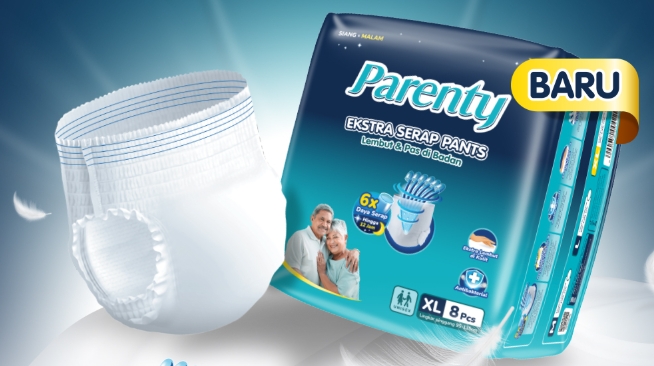Urinary incontinence is a problem that many people experience, but it is more common in women than men. This phenomenon can cause embarrassment and discomfort. Let's discuss why urinary incontinence is more common in women and how to deal with it.
What is Urinary Incontinence?
Urinary incontinence is a condition where a person loses control over their urine, allowing it to leak out involuntarily. This can happen in a variety of situations, such as when coughing, laughing, sneezing, or even just walking around. Urinary incontinence generally occurs due to weakened pelvic muscles or damage to the urinary tract.
Types of Urinary Incontinence
Urinary incontinence can be divided into several types, including:
Stress Urinary Incontinence
This is the most common type in women. Stress urinary incontinence occurs when sudden pressure on the bladder, such as when coughing or sneezing, causes urine to leak. Women often experience this after childbirth or during menopause.
Urge Urinary Incontinence
This type of urinary incontinence occurs when there is a sudden strong urge to urinate, and a person is unable to hold it in. It can be caused by irritation of the bladder or a nerve disorder.
Overflow Urinary Incontinence
Overflow urinary incontinence occurs when the bladder fills up but cannot empty completely. As a result, urine will continue to leak. This can be caused by urinary blockage or nerve problems.
Factors Affecting Women
Several factors make women more prone to urinary incontinence, including:
Female Anatomy and Circumstances
The anatomy of the female body is different from that of men, and some structures such as the urethra are shorter in women. This makes them more susceptible to pressure on the bladder, which can trigger stress urinary incontinence.
Pregnancy and Childbirth
Pregnancy and childbirth can cause excessive pressure on the bladder and pelvic muscles. This process often results in damage to these muscles, which can lead to urinary incontinence.
Menopause and Hormones
Menopause can result in decreased levels of the hormone estrogen, which plays a role in maintaining healthy tissues around the urethra and bladder. This decrease in hormones can make these tissues weaker and increase the risk of urinary incontinence.
How to treat urinary incontinence in women
Fortunately, there are many ways to treat urinary incontinence in women. Some of these include:
Kegel Exercises
Kegel exercises are exercises that involve the pelvic muscles. It can help strengthen these muscles and improve control over the bladder. These exercises can be done easily at home.
Lifestyle Changes
Taking care of your health, including maintaining a healthy weight and avoiding smoking, can help reduce your risk of urinary incontinence. Maintaining proper fluid intake and avoiding caffeinated drinks can also help.
Medical Treatment
If urinary incontinence is severely interfering with daily life, there are medical treatments available. Doctors may recommend physical therapy, medications, or even surgical procedures, depending on the severity.
Urinary incontinence is a common problem in women, but it doesn't have to control life. With an understanding of the types of urinary incontinence and the factors that influence it, women can seek appropriate solutions to address the problem.
Whether through Kegel exercises, lifestyle changes, or medical treatment, there are many ways to overcome urinary incontinence and regain control over the bladder. Do not hesitate to talk to your doctor if you are experiencing this problem, as they can provide the right guidance and solutions to suit your needs.









